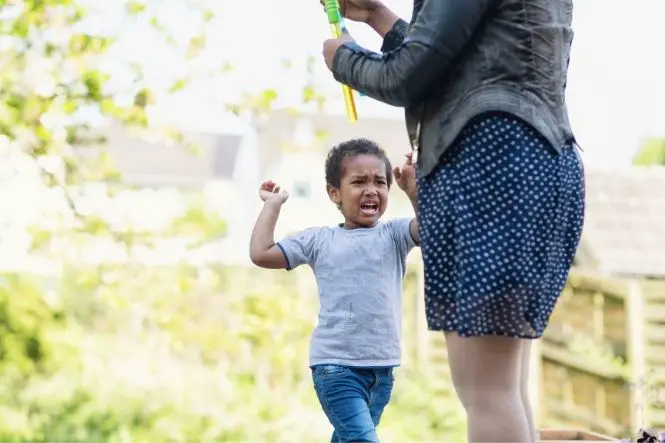Whining sometimes comes naturally to children, much to the chagrin of most parents. Having to hear complaints, particularly when they are drawn out in a high pitched voice, accompanied by tears or whimpering, is never fun and when it carries on consistently often begins to grate on adults’ nerves.
Why Kids Whine
Kids whine for a variety of reasons. Sometimes children whine because they want a particular item that is off-limits to them, but just as often there is more going on in the background than just greed or desire. Common contributors to children’s whining include:
- Physical discomfort including exhaustion, hunger or thirst.
- Attention seeking from a particular adult, even if it means negative attention.
- A means of expressing anger or frustration, for example when holding a grudge.
- Dealing with confusing emotions such as jealousy or a desire to compete.
- An attempt to control a situation or person over which they feel powerless.
- A coping mechanism to dealing with life changes such as a death, divorce or remarriage.
- They are unable to identify their own feelings and so can not adequately act upon them.
- They have learned that whining works and they will get what they want.
Responding to Young Children’s Whining
Young children often lack the vocabulary necessary to articulate their needs, even if they know what their needs are to begin with. Whining then is a defence against this frustration, a way for young children to seek attention in an attempt to communicate a need or want. Sometimes young children won’t even be aware that they are whining until someone brings the way they are speaking to their attention. Responding to the whining of young children, then, should begin with telling them that you don’t like how they are communicating. Mimic their tone if necessary to give them an example. Next, ask what it is they want and why they want it. Finally, explain why you can or can not fulfil this need right now and what the two of you can do together to make them feel better.
Stopping the Whining of Older Children
Older children tend to know what they are saying, and maybe even how they are saying it, but that won’t necessarily stop them from whining. If you recognise the particular signs your child gives before whining or a tantrum starts then you may be able to stop it before it gets out of control. Rewarding a child, for example with a small treat for getting through an afternoon of errands, may be enough to stop the whining as may the promise of “points” towards a larger treat at a later time. The exact opposite strategy, taking something away or forcing children to “forfeit” something when the do whine, may also work to stop whining. If your child still whines, taking them to a private place to ask them more about how they are feeling and why they are acting in such a way could be an option as well.
Children naturally whine, this is a truth with which parents must become comfortable. Yet just because children whine doesn’t make it acceptable or appropriate, so understanding why children whine and how to stop the whining of both younger and older children is important for adults dedicated to changing this challenging behaviour.


